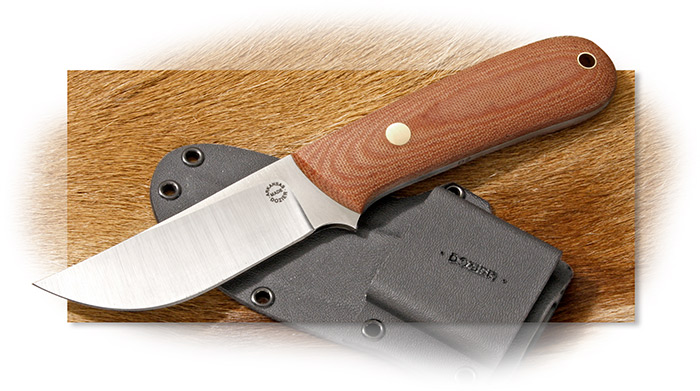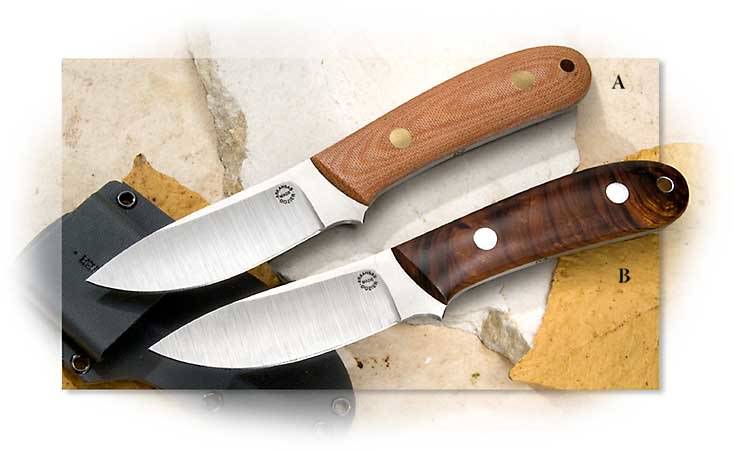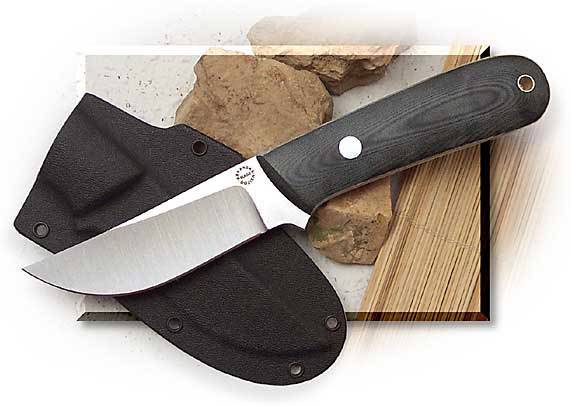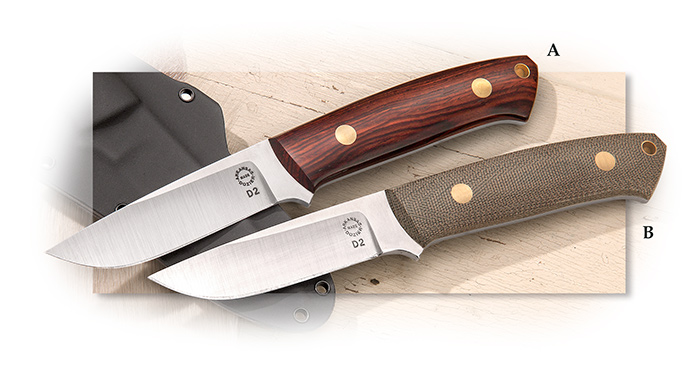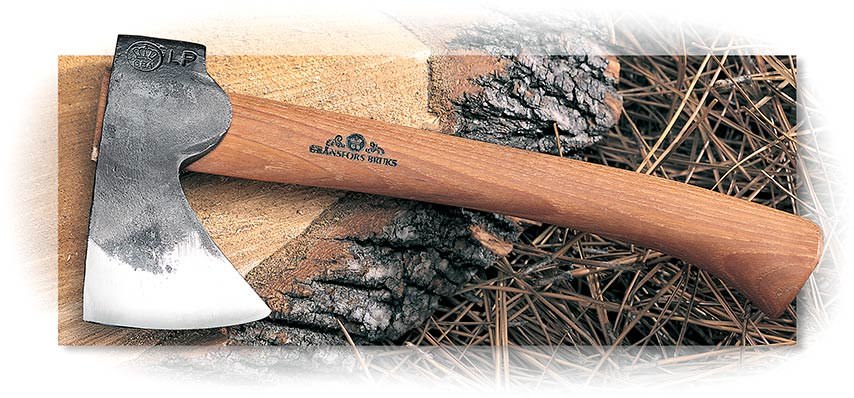Arkansas Made Dozier White River Skinner Natural Rucarta
Item #: DK-WRYMH
$285.00
This White River Skinner, named for the White River National Forest in Colorado, is as suitable for skinning Beaver as it is for skinning Grizzly or Moose.
Once again, Bob Dozier has taken the complex and made it look simple. The subtle relationship between the cutting edge, the skinning belly, and the angle and shape of the handle, result in a knife that looks as if anyone could have designed it. Only when it is in the hand can you begin to appreciate how this knife will function in the field.
Using his favorite knife steel, D2, a high-carbon, high-chrome die steel, hardened to 60-61 Rc, Bob delivers a knife that will hold an edge better than any other in his price class. This model is handled in a natural Rucarta®.
The horizontal Kydex sheath is Bob's design, and utilizes his own break-out latch. You only have to put your thumb on top of the belt loop when you grip the handle and the knife comes easily from the sheath. This is as solid and safe a sheath as you can find. 3-1/2" skinning blade of 1/8" D2 stock. Overall length is 7-3/4". Weighs 6.2 oz. with sheath.
If a Dozier knife is not in stock when you order, delivery typically takes 3 to 4 months.
-
TypeFixed
-
BladeSkinner
-
Blade Length3-1/2″
-
Blade SteelD2
-
Rockwell60-61
-
HandleNatural Micarta
-
TangFull
-
Overall Length7-3/4″
-
Weight6.2 oz
-
SheathHorizontal Kydex
-
OriginUSA
Arkansas Made Dozier
Bob Dozier made his first knives when he was only twelve or thirteen years old. He told me the other day that after those few knives, he did not make another until he was about twenty-three and working as a rough neck in the oil fields in Louisiana. He talked about that first simple knife and then told a story about a co-worker asking to come to watch him make knives. Bob had made several knives by then and had created a small rough shop. He said the man stayed and watched until the knife was finished which took most of the day. When it was finished, he asked to look at it. After handling it for a while, he asked Bob how much he wanted for it. Without giving it any thought, Bob says he said $12.50. The man pulled out twelve one dollar bills and two quarters, laid them on the bench, got in his truck and left. Bob went in the house and told his wife he had just sold a knife which took him most of the day to make for $12.50. But, he told me, at that moment he knew he was going to be a knifemaker. That was about 1963.
If you had the opportunity to look through Bob’s collection of his old knives, you would find that he has made many different kinds of knives; hunters, Bowies and fighters, and more recently folders. You can definitely see a relationship between a pair of fighting knives he made in those early years and the practical, utilitarian fighters that began to appear from handmade knifemakers and knife manufactures from the late 1960s and became tremendously popular during the Viet Nam War era. These knives used to be called fighting knives. Today they are called Tactical Knives.

